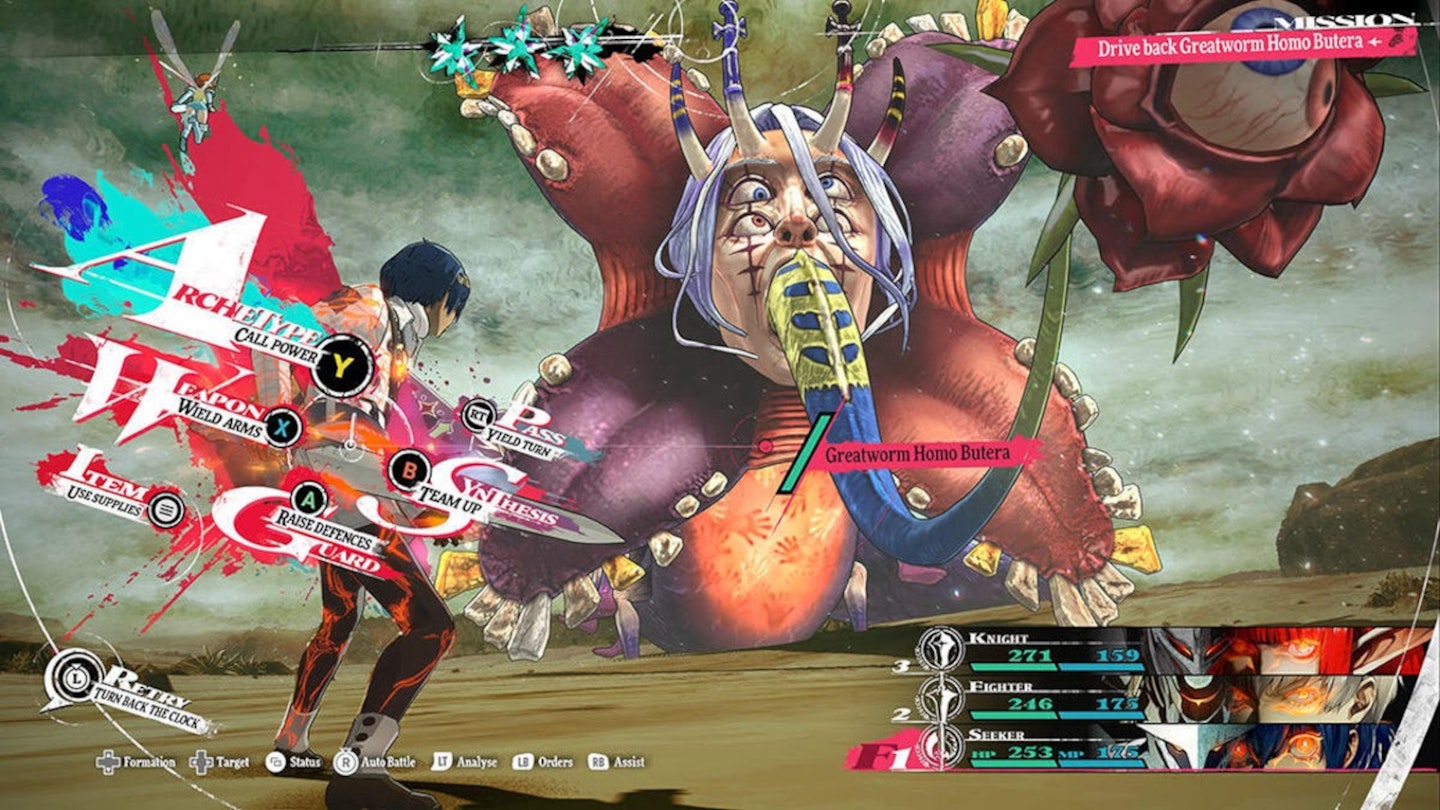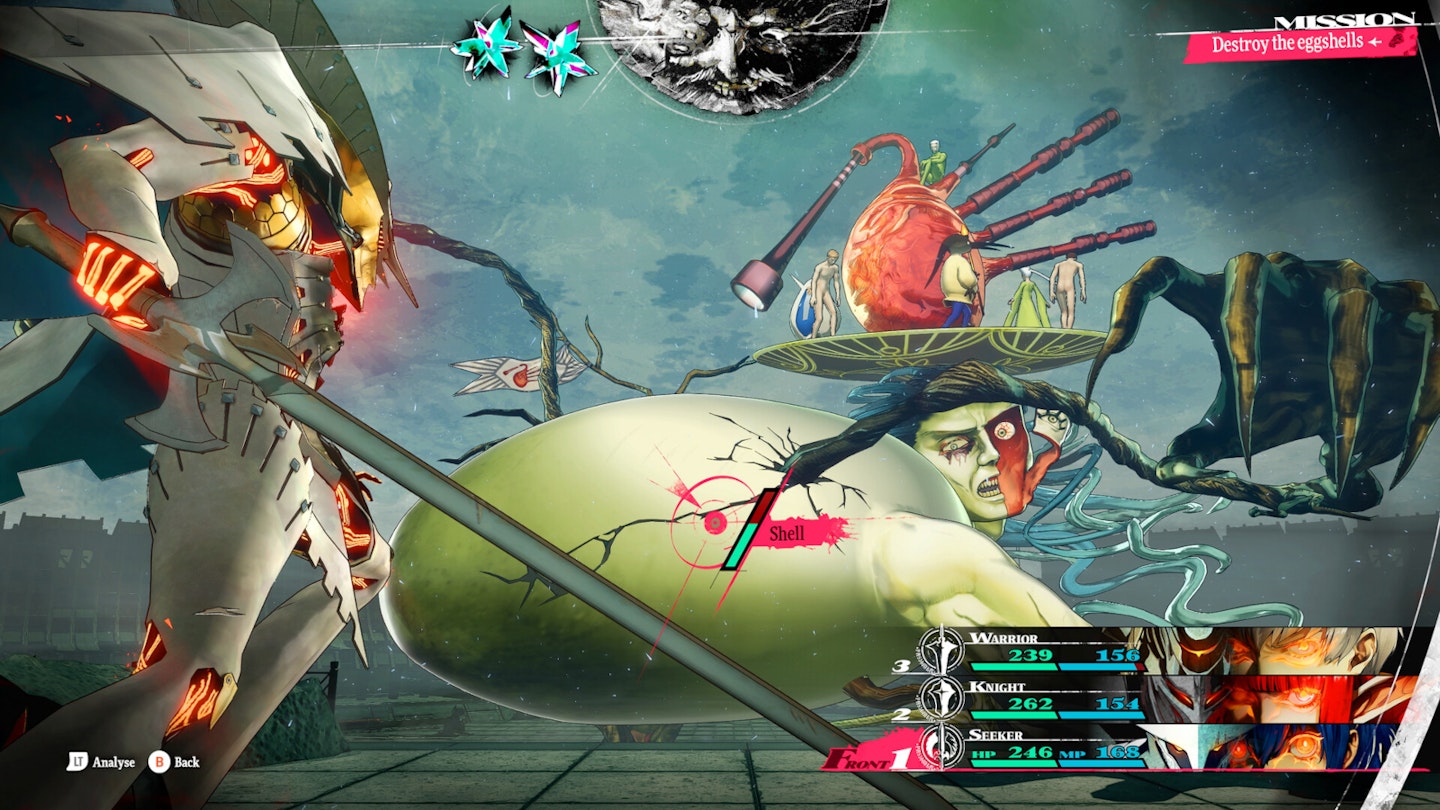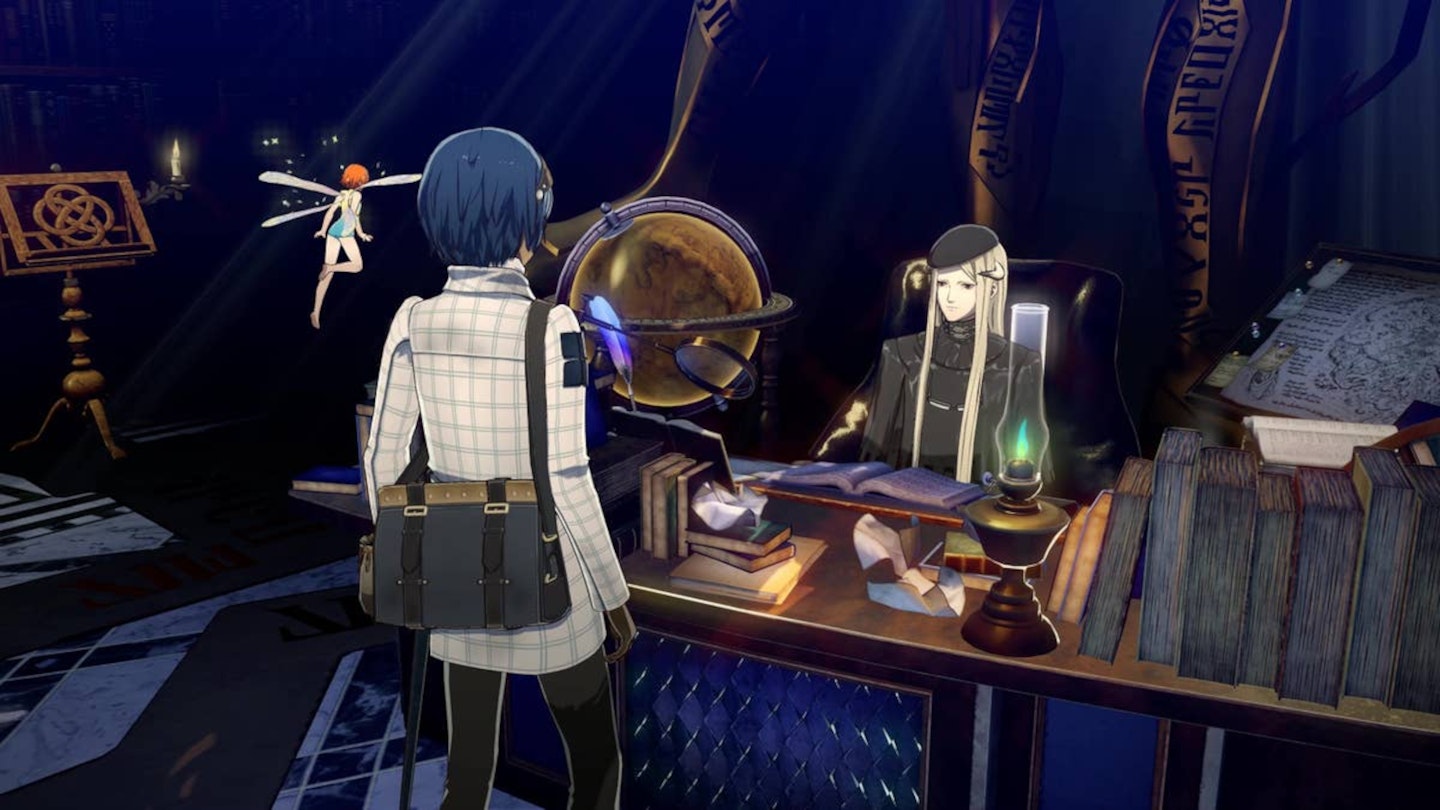Platforms: PS5, PS4, Xbox Series X|S, PC
At a glance, Metaphor: ReFantazio may seem like little more than a high fantasy re-skin of developer Atlus' Persona series of JRPGs. A stylishly dressed yet unnamed central protagonist? Check. Anime visuals? Check. Social bonds informing the relationships between party members? Check. Super-powered alternate forms derived from each character's psyche? Sure, but they're called Archetypes rather than Personas now, and the pocket dimension where you master them is now Akademia, instead of the Velvet Room.

Look closer though, and this is one of the Japanese studio's most ambitious and inventive games in years, an evolution of the gameplay mechanics and worldbuilding techniques mastered over dozens of Persona and Shin Megami Tensei games, elevated even further. In short, Metaphor: ReFantazio sets a new standard for the genre.
Set in the United Kingdom of Euchronia, the game sees players take control of a young man from the Elda tribe – one of many species in this world, but to us the most conventionally human-looking, and the most discriminated against by other races. With the death of Euchronia's king under suspicious circumstances, the hero is swept up into a magical campaign to replace him, kickstarting a journey to unite the disparate peoples of the world under his banner – all while seeking to lift a curse placed on the dead king's hidden true heir.
This is a world riven by class and racial prejudices though, reflected in the cultures and characters met along the way, from the horned Clemar who make up a bulk of the population to the canine Paripus who are too often relegated to the dregs of society. Each has their own place in Euchronia's hierarchy, and not many are happy with it. Yet where Persona might have set about breaking the system as a group of scrappy outsiders, Metaphor: ReFantazio explores the difficulty of working within systems, gathering people to a cause, changing the world through collectivism rather than individualism.

It makes for a deeply political game, even more so than Atlus' previous outings, which rarely shied from the subject themselves. It's a mirror to reality in many ways, but in a deliberate questioning of what fantasy is, our own world is a fairy tale in Metaphor, right down to "Humans" being horrific monsters that torment the inhabitants of Euchronia.
For anyone coming to this off the back of the likes of Persona 3 Reload or Persona 5 Royal, it's probably no surprise to note that it all looks gorgeous too, but Metaphor really takes things to a whole new level.
Combat, whether against those signature Human nightmares or smaller grunt creatures, gets the biggest overhaul in contrast to Atlus' earlier games. While there's a strong turn-based core that will be immediately familiar to Persona players – right down to exploiting elemental weaknesses using those super-powered Archetypes to gain extra turns – everything is considerably streamlined thanks to real-time melee strikes than can immediately dispatch much weaker enemies without a turn-based slog. That makes stretches of dungeon far more tolerable, especially when non-combat allies like Gallica, the protagonist's fairy-sized friend, can highlight how powerful an enemy is before engaging.
It's not the only aspect that Metaphor improves over its predecessors. Persona's social links and attendant stats are now a refined series of bonds and Royal Virtues, serving essentially the same purpose but clearer to level up and improve. It feels like a grander exploration of the same ideas, gaining traction with communities as you explore the world. More importantly, improving those bonds unlocks more abilities and classes for your Archetypes, allowing for experimental builds with inherited skills, all of which can be swapped between party members for a truly flexible battle system.

Similarly, Metaphor demands you apportion your time wisely, Persona-style, with an ever-ticking clock and deadlines for key quests to keep track of. However, while side objectives and social activities eat into the schedule, they rarely feel like filler – even dashing off on a tangent to the other side of the map for a sub-quest usually feels rewarding and worthwhile.
For anyone coming to this off the back of the likes of Persona 3 Reload or Persona 5 Royal, it's probably no surprise to note that it all looks gorgeous too, but Metaphor really takes things to a whole new level. Shigenori Soejima's character designs are meticulously crafted, location designs are richly detailed, and the frequent animated cutscenes are on par with the best of modern anime. That it's all achingly stylish throughout, right down to typefaces and menu layouts, makes for an embarrassment of visual riches – and Shoji Meguro's glorious score means the audio side is no slouch, either.
The cost of all the scope, the big ideas, the attention to detail of Metaphor: ReFantazio is that it's long. Ridiculously long. Many-players-may-never-see-the-end-credits long. You're charitably looking at 100 hours of play time – considerably more if you're the sort of player to seek out every last nugget the game has to offer. It will, completely understandably, be too much for many players – but for those who see the revolution through to the end, it's a world-changing experience.
